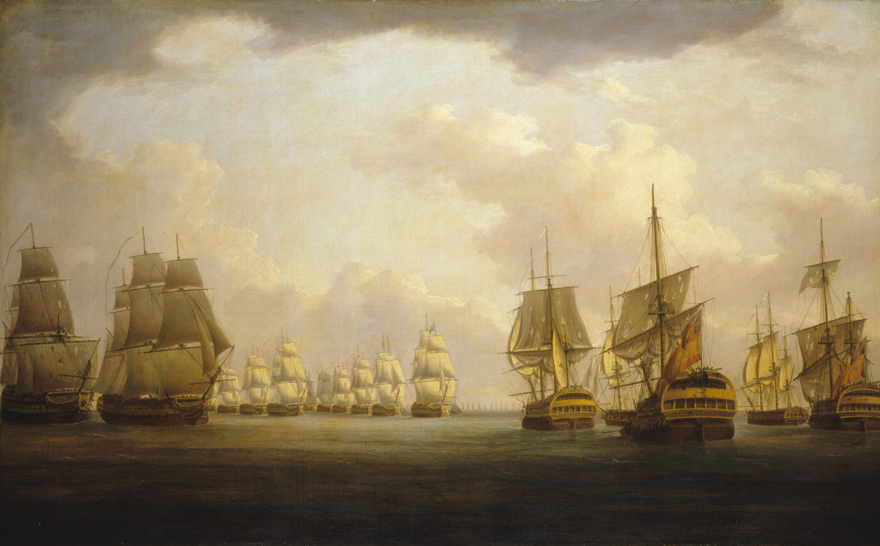The Original List of Ships of the Line in the Mediterranean in 1809 Despatched for Admiral Collingwood
A hand written despatch detailing "A list His Majesty's Ships of the Line, their commanders and Flag Officers, present in the Mediterranean on 6th March 1809". Listed for Vice Admiral Collingwood for the Admiralty. On Admiralty paper showing part of it's original crown and Britannia watermark Admiral Collingwood is considered my many as one of England's greatest sailors, and a man without peer. He was known as Nelson's hero, and they were buried side by side in St Pauls. At the Battle of Trafalgar the combined fleet sailed from Cadiz in October 1805. The Battle of Trafalgar immediately followed. Villeneuve, the French admiral, drew up his fleet in the form of a crescent. The British fleet bore down in two separate lines, the one led by Nelson in the Victory, and the other by Collingwood in the Royal Sovereign. The Royal Sovereign was the swifter sailor, mainly because its hull had been given a new layer of copper which lacked the friction of old, well used copper and thus was much faster. Having drawn considerably ahead of the rest of the fleet, it was the first engaged. "See", said Nelson, pointing to the Royal Sovereign as she penetrated the centre of the enemy's line, "see how that noble fellow Collingwood carries his ship into action!" Probably it was at the same moment that Collingwood, as if in response to the observation of his great commander, remarked to his captain, "What would Nelson give to be here?" Collingwood's merits as a naval officer were in many respects of the first order. His political judgement was remarkable and he was consulted on questions of general policy, of regulation, and even of trade. He was opposed to impressment and to flogging and was considered so kind and generous that he was called "father" by the common sailors. Sailor Robert Hay who served with Collingwood wrote that: "He and his dog Bounce were known to every member of the crew. How attentive he was to the health and comfort and happiness of his crew! A man who could not be happy under him, could have been happy nowhere; a look of displeasure from him was as bad as a dozen at the gangway from another man". And that: "a better seaman, a better friend to seamen - a more zealous defender of the country's rights and honour, never trod the quarterdeck."
Code: 19653
950.00 GBP



